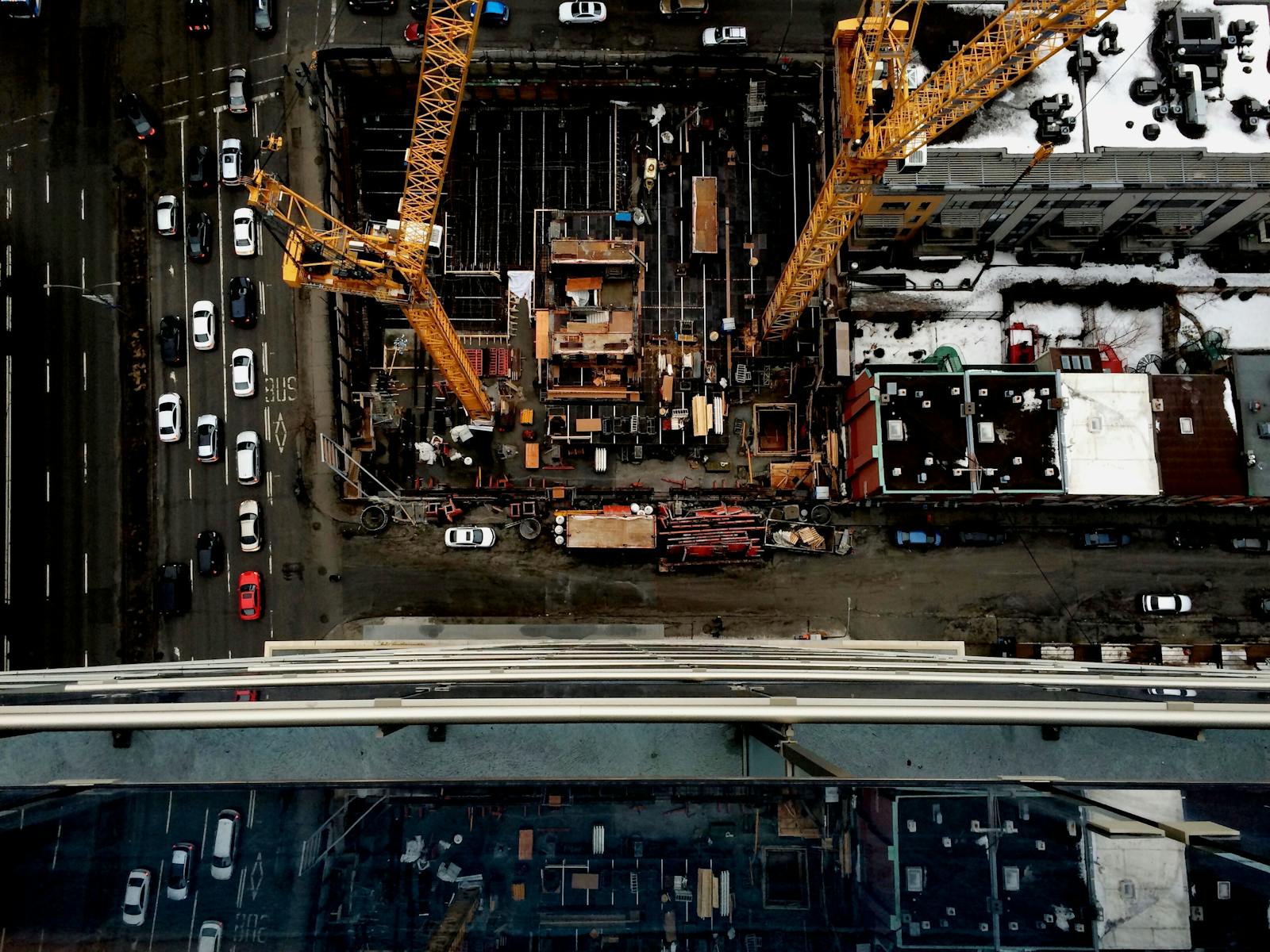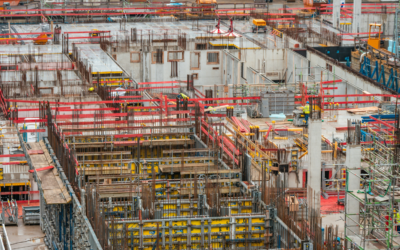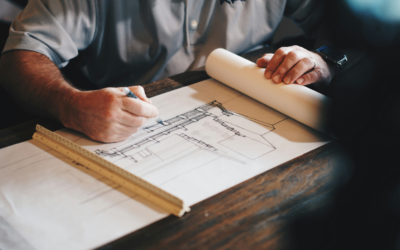Commercial construction is a dynamic and multifaceted industry that plays a crucial role in shaping the built environment around us. From office buildings and retail spaces to warehouses and mixed-use developments, commercial construction projects are at the heart of economic development.
For real estate and property developers, understanding the nuances, processes, and trends in this field is essential for making informed decisions and achieving success.
This guide covers everything you need to know about commercial construction, including definitions, processes, project types, financing, and industry trends. If you’re considering your next project, this comprehensive overview will equip you with the knowledge to move forward with confidence.
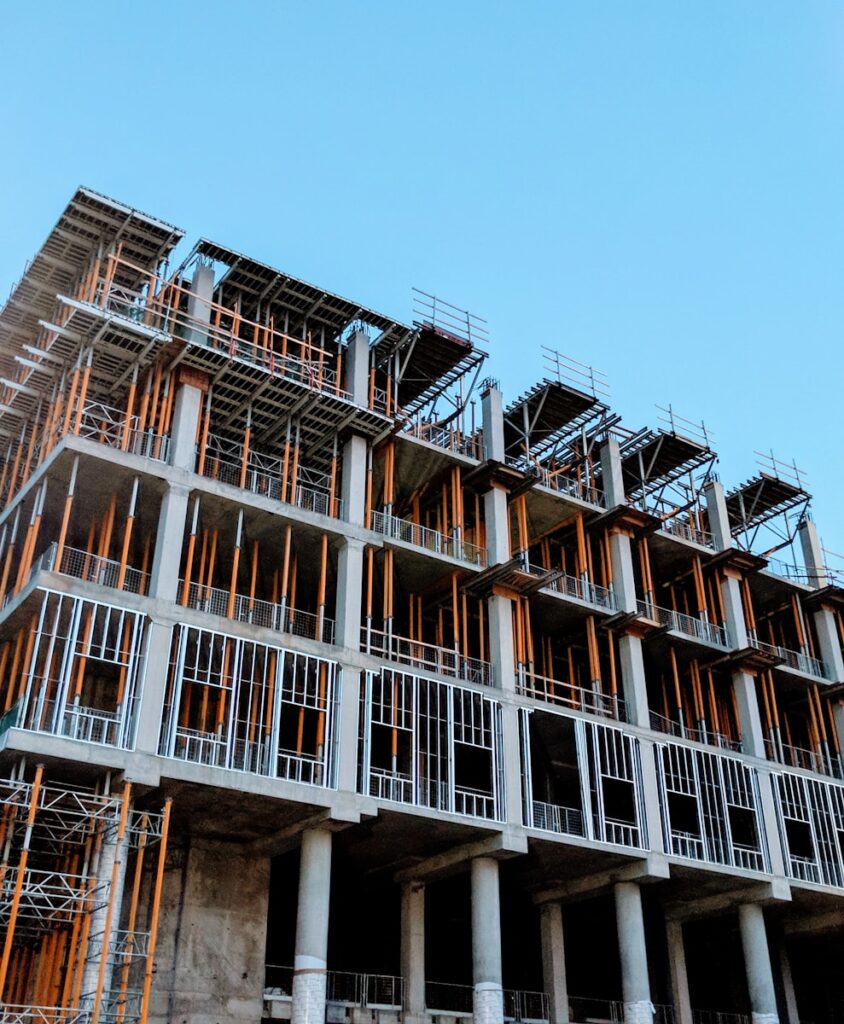
What is Commercial Construction?
Commercial construction involves the design, renovation, and building of structures used for commercial purposes.
These projects are typically funded either by private developers, governments, or organizations seeking to establish spaces for business operations, retail, or public service.
Unlike residential construction, which focuses on homes and apartments, commercial construction covers a wide range of property types, including:
- Office Buildings – Spaces for corporate or professional activities.
- Retail Stores – Shops, malls, and other venues for consumer engagement.
- Warehouses – Logistics and storage hubs.
- Mixed-Use Developments – Projects combining residential and commercial spaces.
- Commercial Buildings – Hotels, retail spaces, and healthcare facilities, each with specific regulatory requirements.
Commercial construction is a vital sector of the economy, with significant contributions from architects, engineers, contractors, and various other stakeholders.
Types of Commercial Construction Projects
Commercial construction projects vary significantly in scope and purpose. They can be categorized as follows:
Commercial and residential construction differ in several ways, including financing, site size, and equipment requirements.
Small-Scale Projects
The smallest projects often involve renovations, repairs, or expansions that do not alter a building’s structure significantly. Examples include:
- Updating a restaurant storefront.
- Adding a small conference room to an office floor.
Medium-Scale Projects
Medium-scale projects involve upgrades and expansions, often built from the ground up. For example:
- Redesigning and expanding a retail store layout.
- Developing a small office building in a business district.
Large-Scale Projects
Large-scale projects are significant undertakings that transform existing structures or create entirely new ones. Examples include:
- Building skyscrapers or high-rise office complexes.
- Creating retail malls or massive logistics warehouses.
Mixed-Use Projects
These combine commercial activities with residential or other functional spaces. Examples include:
- Developments with retail on the ground floor and apartments above.
- Communities designed to incorporate restaurants, gyms, and offices.
Understanding the scope of your project will determine how you approach planning, financing, and execution.
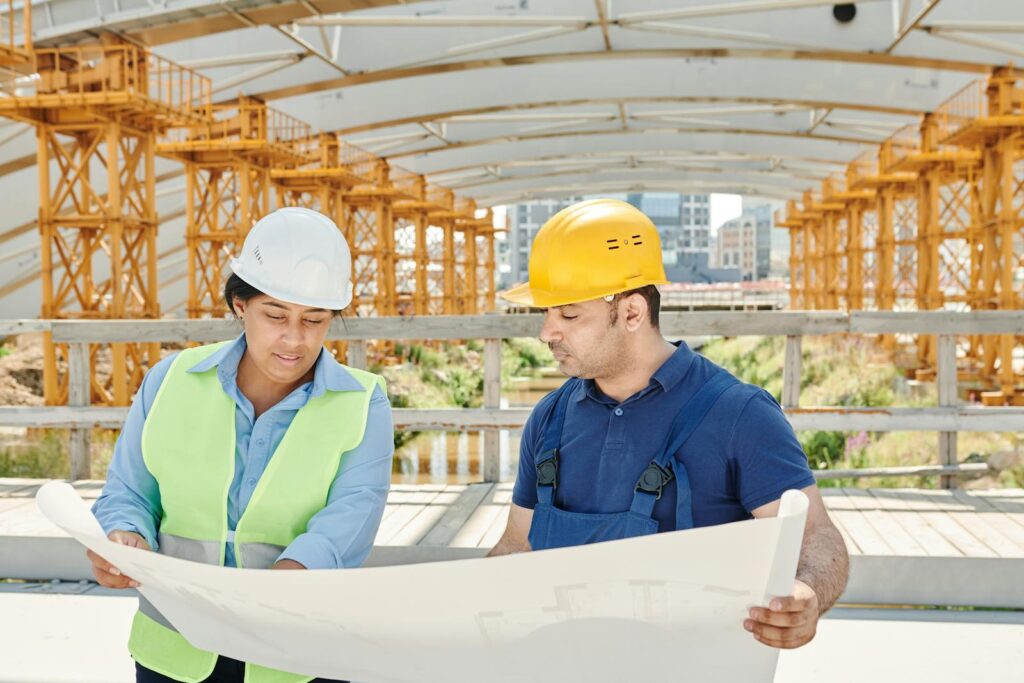
The Commercial Construction Process
The pre construction phase is a crucial step in the commercial building process that involves extensive paperwork, obtaining necessary permits, and establishing a project team.
The commercial construction process comprises various phases, each requiring meticulous planning and attention to detail. Here’s an overview of the critical stages:
Development and Planning Phase
The foundation of every successful project begins with thorough planning:
- Location Selection – Find a site that offers commercial viability.
- Budget Setting – Allocate costs for materials, labor, and contingencies.
- General Contractor Selection – Choose an experienced contractor with expertise in commercial construction.
During this stage, developers and project managers must coordinate with the project team to anticipate challenges, reduce risks, and establish a strong plan.
Design Phase
The design phase brings vision to reality through detailed architectural plans, drawings, and schematics:
- Mechanical Engineers ensure internal infrastructure (e.g., HVAC systems) is efficient and operational.
- Structural Engineers verify the building’s structural stability and code compliance.
Design accuracy is critical to meeting client expectations on budget and within deadlines.
Bidding Process
The bidding phase allows multiple contractors to submit competitive proposals:
- Cost Breakdown – Detailed allocations for materials, labor, and timeline estimates.
- Compliance – Proposals must account for zoning laws, permits, and safety regulations.
Developers should choose contractors known for delivering quality projects efficiently.
Construction Phase
Execution is the most visible step in commercial construction. Careful planning is essential, and it culminates in the phase where construction begins, marking the transition from idea to execution:
- Site Preparation – Grading, soil testing, and laying the foundation to ensure structural integrity.
- Construction – Building the project according to blueprints and specifications.
- Post-Construction Activities – Addressing the punch list (final fixes) and final inspections.
Managing a Commercial Construction Project
Project managers must balance schedules and budgets while coordinating with the project team throughout construction. A construction manager oversees the project from inception to completion, handles quality control, and manages challenges during the construction phase.
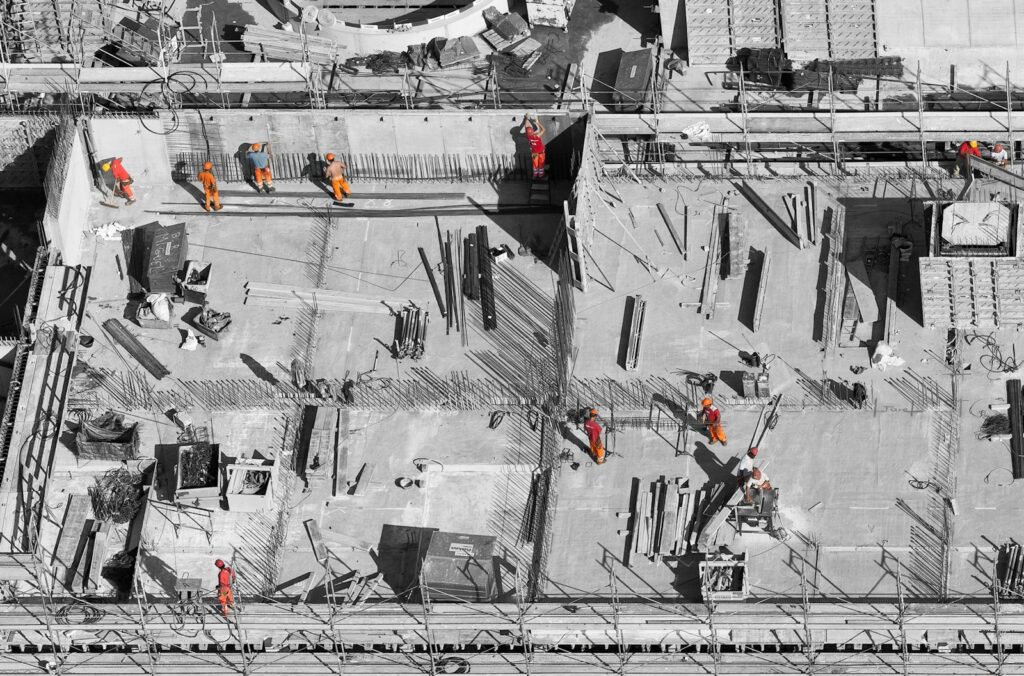
Working with a General Contractor
Working with a general contractor is a cornerstone of successful commercial construction projects. A general contractor oversees the entire construction process, from the initial development and planning phase to the final touches in the post-construction phase.
They manage the construction team, ensure compliance with safety regulations, and coordinate with subcontractors and suppliers to keep the project on track.
When selecting a general contractor, it’s essential to consider their experience, reputation, and expertise in commercial construction. A seasoned general contractor will have a proven track record of delivering projects on time, within budget, and to the highest quality standards.
Commercial Construction Financing
Commercial construction requires significant capital investment. Common financing options include:
- Commercial Loans – Tailored for large projects; typically offered by banks.
- Construction Loans – Short-term loans covering building costs until completion.
- Bridge Financing – Temporary solutions for cash flow during project milestones.
Securing appropriate financing ensures projects have enough resources to move forward without delays.
Technology and Innovation in Commercial Construction
Technology is revolutionizing the industry, offering tools to streamline processes, reduce costs, and improve safety:
Building Information Modeling (BIM)
A digital representation of construction projects, BIM allows for collaborative design and improves communication between stakeholders.
Modular Construction
Prefabricated components assembled on-site save time and reduce labor costs.
Robotics and Drones
Automating repetitive tasks and conducting site inspections improves efficiency and safety.
Sustainability in Commercial Construction
Green initiatives are reshaping the industry. Developers increasingly seek ways to minimize environmental impact:
- Energy Efficiency – Utilizing renewable energy systems.
- Sustainable Materials – Incorporating recycled or eco-friendly materials.
- LEED Certification – Projects meeting specific sustainability standards.
Not only does sustainability benefit the planet, but it also reduces long-term operating costs.
Safety and Regulations in Commercial Construction
Safety and regulatory compliance are critical components of commercial construction projects. The construction industry is subject to a range of regulations and standards, including OSHA guidelines, building codes, and environmental regulations.
Adhering to these regulations is essential for ensuring the safety of workers and the public, as well as for avoiding legal issues and fines.
Trends and Insights in Commercial Construction
The commercial construction industry is continuously evolving. Developers should watch for:
- Smart Buildings – Utilizing IoT for real-time monitoring and energy efficiency.
- Mixed-Use Growth – Increased demand for development combining commercial and residential spaces.
- Adaptive Reuse – Transforming old buildings into modern commercial properties.
- Enhanced Safety Protocols – Innovations from wearables to AI-driven monitoring systems.
Commercial construction companies play a crucial role in managing diverse projects across various industries. Experienced contractors are essential in mitigating risks and ensuring successful outcomes, tailoring their approach to align with client visions from the design phase through project execution.
By staying informed about trends, developers can ensure their projects remain competitive and future-proof.

Work with a Trusted Partner
Choosing a reliable commercial construction company is critical for success. At South Coast Improvement Company, we specialize in delivering fully integrated Design-Build Services that streamline the process from concept to completion.
Whether you’re envisioning a new structure or upgrading an existing property, our team offers expertise and efficiency every step of the way. Construction companies play a vital role in both residential and commercial sectors, emphasizing the importance of careful planning and execution in the commercial building process.
Contact South Coast Improvement Company today for a free consultation and explore how we can elevate your next commercial construction project. Whether it’s planning, financing, or execution, we’re here to make your vision a reality.
Learn More
Stay informed about the latest in commercial construction and related services by exploring the resources below:
- What is Design-Build? – A comprehensive explanation of the Design-Build methodology and its advantages in construction projects.
- Benefits of Sustainable Building Practices – Explore the environmental and financial benefits of incorporating LEED-certified green building practices.
- Budgeting for a Commercial Construction Project – Insights and strategies to effectively plan and manage your project budget.
- Choosing the Right Construction Partner – Tips for selecting a reliable and experienced construction company to ensure project success.
- Understanding Construction Safety Standards – Learn the key safety regulations and practices to ensure a safe job site environment.
Dive deeper into these resources to enhance your understanding and ensure success in your commercial construction endeavors.
View Our Work
Aspen Dental
Partnering with The Aspen Group on the construction of a new Aspen Dental facility that’s functional & welcoming for patients & staff alike. South Coast Improvement Company was awarded the construction of a new Aspen Dental facility in Killingly, CT. The...
Springhouse Senior Living – HumanGood
Designed to enhance comfort & functionality. South Coast Improvement company was hired by HumanGood for an interior and exterior renovation at Springhouse Senior Living. Our skilled teamtransformed the 2nd through 5th floor common areas into brighter, more...
